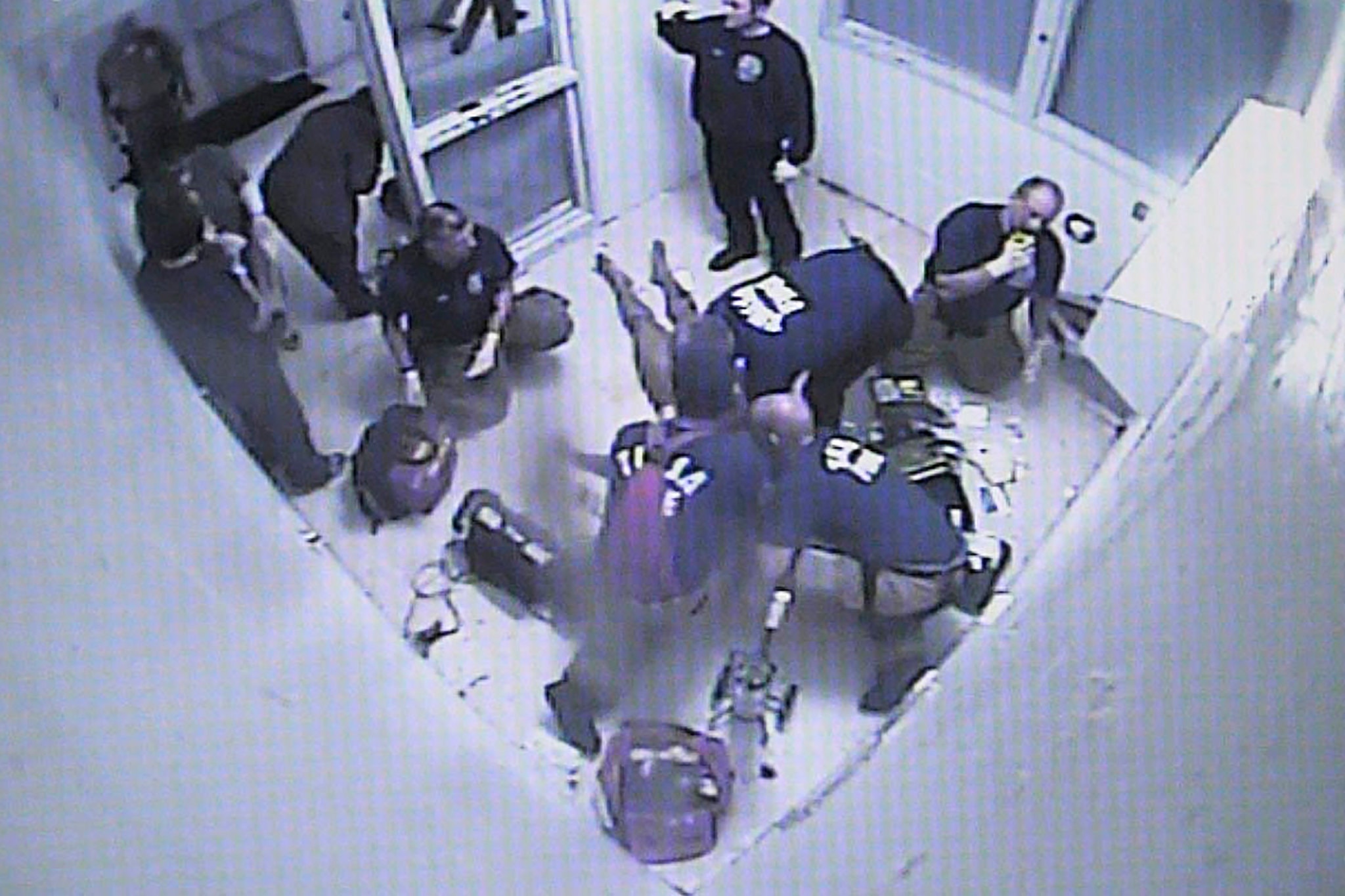This week, The New York Times and The Washington Post, covered the horrific story of Elliott Williams. Eight years after Mr. Williams’ torturous death, Tulsa County agreed this week to pay $10 million to his estate, marking the end of a civil rights lawsuit filed by his parents and represented by Smolen and Roytman.
On Saturday, October 22, 2011, 37-year-old Elliott Williams sustained a debilitating spinal injury while in the custody of the Tulsa County Sheriff’s Office.

Williams, who was also a veteran with no criminal record, was suffering a mental breakdown. Owasso police were called to a hotel where he was staying where Williams was threatening to commit suicide
Rather than wait for a mental health team, Williams was arrested and taken to the Tulsa Jail, where officers slammed him to the ground by his head and neck. After that, he could not stand and said he thought his neck was broken. He did not receive medical attention and died 51 hours later and was eventually found dead in his cell, lying naked on the floor.
Dan Smolen, the estate’s attorney, tells The New York Times, “It’s so disturbing. There were dozens of people who came in contact with Elliott Williams in the Tulsa County Jail and laughed at him, mocked him, thought he was faking and didn’t do anything.”
“It’s the dehumanization of people who are in their custody,” Mr. Smolen added. “There’s just a total attitude of indifference.”
Read the full New York Times article below or on their website. You can also see previous coverage on our website.
Family to Get $10 Million After Death of Man Left in Jail Cell With a Broken Neck
An Oklahoma county agreed to pay the estate of Elliott Williams, whose complaints were ignored by members of the detention and medical staff for five days.
Elliott Williams tried to tell guards at an Oklahoma jail that he had broken his neck.
But surveillance footage shows staff members at the Tulsa County Jail throwing trays of food toward him and placing water out of his reach as he struggled to move on the floor. They dragged him on a blanket from another cell, and would later say he “acted as if paralyzed” and wanted “to be waited on.”
Elliott Williams was eventually found dead in his cell, lying naked on the floor.
More than eight years later, the county agreed this week to pay $10 million to the estate of Mr. Williams, marking the end of a civil rights lawsuit filed by his parents.
By the time he died, he had been injured for five days, and the jail recorded the final 51 hours of his life from a monitored medical unit.
“It’s so disturbing,” said Dan Smolen, the estate’s attorney. “There were dozens of people who came in contact with Elliott Williams in the Tulsa County Jail and laughed at him, mocked him, thought he was faking and didn’t do anything.”
“It’s the dehumanization of people who are in their custody,” Mr. Smolen added. “There’s just a total attitude of indifference.
In 2017, a federal jury awarded the Williams estate a $10.25 million payment that the county then appealed. The settlement announced on Tuesday eliminated the requirement for Stanley Glanz, who was the sheriff at the time of Mr. Williams’s death, to pay $250,000.
Guy Fortney, a lawyer representing the county, said that both parties were pleased to agree to a resolution and that everyone wanted to put the matter behind them.
Mr. Williams, a 37-year-old Army veteran, had been arrested in October 2011 on an obstruction complaint in a hotel lobby in the Tulsa suburb of Owasso. The police noted in the arrest report that Mr. Williams was having a mental breakdown and that he said he was going to kill himself.
After he was brought into custody, Mr. Williams was transferred to a cell at the David L. Moss Criminal Justice Center, where he bashed his head into a steel door and broke his neck. His complaints about the injury were largely ignored by detention and medical staff members.
The medical examiner confirmed in 2014 that Mr. Williams had died from complications of vertebro-spinal injuries, as well as starvation and dehydration.
“Unfortunately, prisoners are by and large a population that can be harmed, can be mistreated, can even be tortured often with impunity,” said David C. Fathi, director of the American Civil Liberties Union’s National Prison Project.
Mr. Williams’s older brother, Kevin Williams, described a sense of relief following the settlement, saying it was some good news after what had been a frustrating, drawn-out battle.
“At the same token,” Kevin Williams said, “no amount of money will bring him back.”
*feature image file from surveillance video provided by the Tulsa County Jail, (Tulsa County Jail/Tulsa World via AP, File) (Associated Press)



